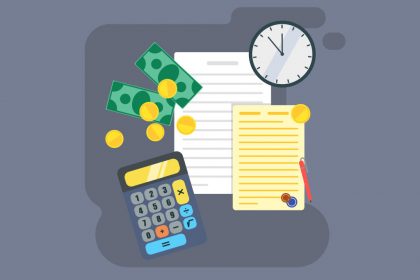Have you got a business roadmap?
Have you got a business roadmap? Find out why it can often be the difference between success and failure, and how you can get yours.
After meeting and interviewing hundreds of entrepreneurs over the past four years, we’ve realised that there was an important difference between businesses who were successful and profitable, and those who were floundering and failing.
And that’s a roadmap.
At its simplest a roadmap is simply a process you follow to start and grow your business. It’s a route that guides you, step-by-consistent-step through the early months of getting your business off the ground.
It makes sure you don’t miss any stages out, and it gives you reassurance that you are making consistent progress (and alerts you when you fall behind or lose your way).
What’s the danger of not having a roadmap?
So what if you don’t already have a roadmap? What’s the danger?
When you’re building a business form scratch there’s so much you need to think about, including (but far from limited to):
- Your offering.
- Your pricing.
- Your branding.
- Your marketing.
- Your target audience.
- Your accounting.
We’re sure you get the idea – there’s a lot you need to do. And the problem with not having a roadmap is not just that you may miss some of these essential steps out, but you might do them in the wrong order. Or, far more dangerous, get sucked into a cul-de-sac along the way.
Beware of business cul-de-sacs
Business cul-de-sacs are those distractions that exist in every business. Distractions that may seem imperative (or just desirable) to do, but that actually don’t contribute to your business progress. They’re also a common procrastination diversion.
Business cu-de-sacs are dangerous because they distract you from the real tasks you should be doing to grow your business. But they can also be very expensive.
Because if you’re not firmly fixed on what you need to be doing next in your roadmap (and only that), it’s easy to be seduced by attractive-sounding sales pitches and quick fixes. Like those six-figure cons you see everywhere.
How do you get a business roadmap?
So how do you get a roadmap for your business, if you don’t have one already? Here are three ways, for three different budgets.
1) Business coaching (£££)
The most expensive, but most tailored, roadmap you can get is business coaching. If you find a good business coach, they’ll establish your business goals at the start of your working relationship, and guide you as you work towards them.
A business coach also ensures that you keep on track with regular accountability. They often bring their own experience or skills to your coaching sessions, too.
2) A business course (££)
If you can’t afford business coaching (a luxury out of the reach of most startups) then consider joining a business course, like our own Kickstart.
Kickstart is a 12-month online course that guides you, month-by-month through your first year in business. We take you through a roadmap that makes sure you tick off every essential process in building a profitable business – from psychology, goal setting and planning, to sales, branding, writing your website and PR.
All while building your confidence and giving the support lacking when you try to go it alone.
This support alone is worth investing in: according to the US Small Business Association (SBA), “70 percent of mentored businesses survive more than five years, double the rate for non-mentored small businesses over that same period”.
3) A business book (£)
The third option is to find a good business book that outlines the process of starting a business from scratch and follow that.
While this is the most cost-effective solution, it’s also the least likely to make the biggest difference. It relies on your own motivation and initiative, and has no forum for feedback, insight and encouragement.
Are you ready to invest in your business roadmap?
It’s no coincidence that every successful entrepreneur we’ve met has, and often continues to, invest in their progress. (Note the word ‘invest’ – you should confidently expect to receive more value back from your outlay than you spend, even if it’s over a long term.)
Meanwhile, every struggling entrepreneur has usually been doggedly, and slowly, battling it out alone.
It’s why we ourselves currently invest over £1,000 a month in coaching and training – all skills and knowledge we pass on as we master it. We know our business will grow bigger, better and faster with a roadmap to follow, and a team to cheer us along.
So what’s your roadmap? And if you don’t have one, what will you do to get one?
Photo by Sébastien Marchand










